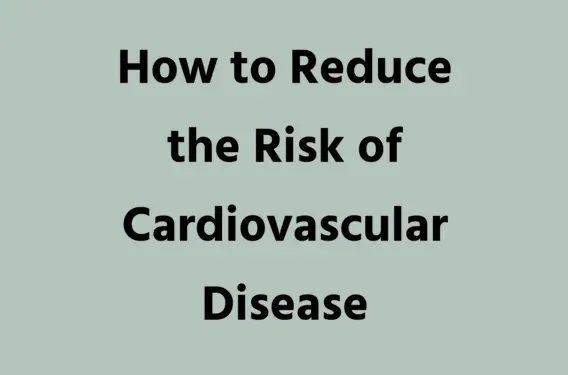Importance of Diet in Preventing Cardiovascular Disease
Heart disease prevention requires a healthy diet. A diet rich in fruits, vegetables, whole grains, lean meats, and healthy fats may considerably reduce heart disease risk. These key reasons make a balanced diet crucial for avoiding cardiovascular disease.
- Reduces cholesterol: Eating a heart-healthy, low-fat diet lowers LDL cholesterol, which increases heart disease risk.
- Low sodium, high potassium diets like the DASH (Dietary Approaches to Stop Hypertension) may help regulate blood pressure. Heart disease is mostly caused by hypertension.
- A good diet may help manage weight, lowering the risk of obesity, diabetes, and heart disease.
- Provides critical nutrients: Fruits, vegetables, and whole grains include heart-healthy vitamins, minerals, and antioxidants.
- Anti-inflammatory foods including fatty fish, almonds, and olive oil may lower cardiovascular disease risk.
- A balanced diet and smart food choices may reduce heart disease risk and improve cardiovascular health.
Cardiovascular Health Benefits of Exercise
Cardiovascular health depends on regular exercise. The main cardiovascular disease prevention advantages of exercise are:
- Strengthens the heart: Jogging, swimming, and cycling strengthen the heart muscle, making it more effective in pumping blood.
- Reduces blood pressure: Exercise improves blood circulation and reduces cardiac effort.
- Exercise boosts HDL cholesterol, or “good” cholesterol. Higher HDL cholesterol reduces heart disease risk.
- Regular exercise helps the body utilize insulin better, lowering the chance of type 2 diabetes, a major cardiovascular risk factor.
- Weight management: Regular exercise burns calories and builds muscle. Heart disease risk is reduced by maintaining a healthy weight.
Heart Health Benefits from Proper Nutrition
Heart health and cardiovascular disease prevention depend on a good diet. Proper nutrition affects the heart:
- Lowers cholesterol: A diet low in saturated and trans fats and high in fiber helps decrease cholesterol, a major risk factor for heart disease.
- Reduces blood pressure: A diet rich in fruits, vegetables, whole grains, lean meats, and low-fat dairy helps lower blood pressure, a significant cause of heart disease.
- Controls weight: Eating well and being active may help prevent obesity. Overweight increases cardiac strain and heart disease risk.
- Supplies necessary nutrients: A balanced diet of fruits, vegetables, whole grains, lean proteins, and healthy fats helps maintain a healthy heart and avoid damage from hazardous chemicals.
- Reduces inflammation: Oily fish, nuts, seeds, and olive oil reduce inflammation. Chronic inflammation increases heart disease risk.
Eating these heart-healthy meals may improve cardiovascular health and well-being. A healthcare expert or qualified dietitian should help you design a heart-healthy eating plan.
Physical Activity and Cardiovascular Disease Prevention
Regular exercise improves cardiovascular fitness and heart health, avoiding heart disease. Here are some reasons why keeping active prevents cardiovascular disease.
- Improves Heart Function: Exercise strengthens the heart muscle, helping it pump blood better. This improves cardiac function by reducing heart workload and resting heart rate.
- Exercise lowers blood pressure, lowering the risk of hypertension, a primary cause of cardiovascular disease.
- Reduces Obesity: Physical exercise helps control weight and avoid obesity, a significant heart disease risk.
- Improves Cholesterol Levels: Exercise raises “good” HDL cholesterol and lowers “bad” LDL cholesterol. Maintaining good cholesterol levels minimizes heart disease risk.
- Improves Blood Sugar Control: Exercise boosts insulin sensitivity and controls blood sugar. This may lower the chance of type 2 diabetes, a cardiovascular disease risk.
For best heart health, moderate-intensity aerobic activity such brisk walking, cycling, or swimming should be done 150 minutes per week coupled with muscle-strengthening exercises.
Combining Diet and Exercise to Prevent Heart Disease
Diet and exercise are the greatest ways to avoid heart disease. Combining these two elements may improve cardiovascular health. A healthy diet and regular exercise may considerably reduce heart disease risk.
Heart health requires eating fruits, vegetables, whole grains, lean meats, and healthy fats. Saturated and trans fats, salt, and added sugars should be avoided. A balanced, nutrient-rich diet may help regulate weight, blood pressure, cholesterol, and blood sugar.
Your heart health may improve further with everyday exercise. Aim for 150 minutes of moderate-intensity aerobic activity like brisk walking or bicycling each week. Two or more times a week, strengthen your muscles. Working exercise may improve cardiovascular fitness, lower blood pressure, maintain a healthy weight, and prevent long-term diseases.
People may reduce their risk of cardiovascular disease and improve their heart health by eating healthily and exercising regularly. To create a customized strategy that meets one’s health and goals, see a doctor or nutritionist.
Prevention
A healthy heart requires aggressive cardiovascular disease prevention. People may greatly lower their heart disease risk by adopting healthy lifestyle behaviors. Key cardiovascular disease prevention strategies:
- Eat a Heart-Healthy Diet: A balanced diet reduced in fats, salt, and sweets is essential. Instead, eat fruits, vegetables, entire grains, lean meats, and excellent fats. This helps you regulate weight, blood pressure, cholesterol, and blood sugar.
- Exercise Regularly: Physical exercise is vital for heart health. Aim for 150 minutes of moderate-intensity aerobic activity like brisk walking or cycling each week. At least twice a week, strengthen your muscles. Regular exercise improves cardiovascular fitness, lowers blood pressure, manages weight, and decreases chronic disease risk.
- Weight Control: Excess weight strains the heart and raises heart disease risk. Keep your weight in check with healthy nutrition and activity.
- Quitting alcohol and smoking is one of the great reasons to improve cardiovascular and overall health.
- Monitor blood pressure and cholesterol regularly: Monitoring blood pressure and cholesterol provides early identification and treatment. Coordinate with your doctor to maintain healthy levels.
These preventative techniques and mindful heart health decisions may dramatically lower cardiovascular disease risk and extend life. For heart disease prevention, simple modifications may have large effects.
About the Author
Reyus Mammadli is the author of this health blog since 2008. With a background in medical and biotechnical devices, he has over 15 years of experience working with medical literature and expert guidelines from WHO, CDC, Mayo Clinic, and others. His goal is to present clear, accurate health information for everyday readers — not as a substitute for medical advice.







